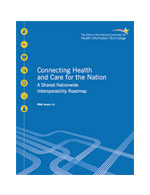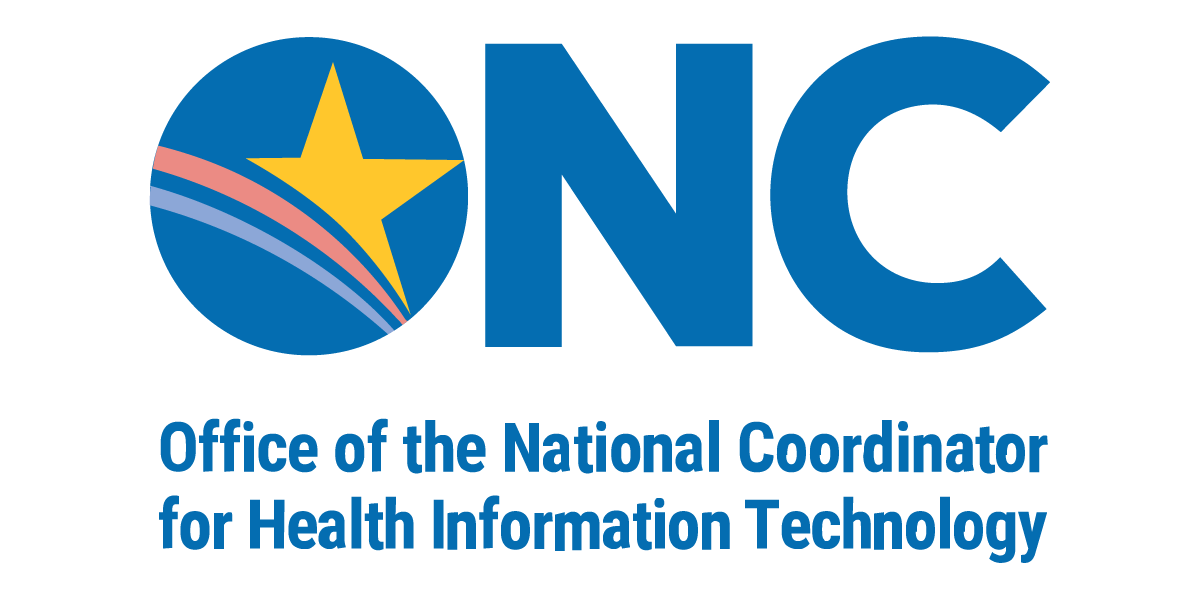 ONC accepted public comments on Connecting Health and Care for the Nation: A Shared Nationwide Interoperability Roadmap Draft Version 1.0. The comment period ended on April 3, 2015.
ONC accepted public comments on Connecting Health and Care for the Nation: A Shared Nationwide Interoperability Roadmap Draft Version 1.0. The comment period ended on April 3, 2015.
The draft Roadmap proposes critical actions that need to be taken by both private and public stakeholders to advance the nation towards a more connected, interoperable health IT infrastructure and was drafted by ONC based on input from private and public stakeholders. The draft Roadmap outlines the critical actions for different stakeholder groups necessary to help achieve an interoperable health IT ecosystem.



Interoperability Comments
I am against a National Medical Records System. The federal government should not be in charge of anything other than our country's defense, the printing of money, and the postal system. When the the federal EVER done anything efficiently and effectively? In general, I do not want the government involved in my life. In particular, however, I am opposed to a National Medical Records System because my medical records are MY property, not public property like this system appears to view them. Secondly, my medical records could be hacked into. Thirdly, it says data can be used without my consent for research. These are just some of the reasons why I do not want a National Medical Records System.
Pennsylvania eHealth Partnership Authority
Please see attachment.
paehpa_interop_roadmap_input_20150402.pdfNaviNet, Inc.
NaviNet has reviewed the priority use cases in Appendix H and is recommending our selection of the top-priority use cases for which standards should be accelerated.
In conducting the review we focused on use cases that will enable providers and payers to succeed with value-based reimbursements, so that all participants would have the incentive and the funding for ongoing investments in increased interoperability.
The top 7 highest priority use cases we identified are (in numerical order):
9 Providers should be alerted or have access to notifications that their attributed patients have had an ER visit, or an admission to or discharge from a hospital.
10 Quality measures are based on complete patient data across multiple sources.
24 Benefits communication needs to be standardized and made available on all plans through HIT to providers and patients as they make health and healthcare decisions, in a workflow convenient to the decision-making process.
25 Payer/purchaser requirements for payment, such as prior authorization, are clear to the provider at time of order and transacted electronically and timely to support efficient care delivery.
31 Payers use integrated data from clinical and administrative sources to determine reimbursement in support of payment reform
39 Primary care providers share a basic set of patient information with specialists during referrals; specialists “close the information loop” by sending updated basic information back to the primary care provider
53 Payers review clinical documentation for payment purposes
Attached is a document listing all use cases and the scoring mechanism we used to complete the priorities.
Many thanks for your leadership in this critical work.
navinet_input_on_onc_use_case_priorities.pdfHealth Data Consortium
Thank you for the opportunity to submit comments on the Interoperability Roadmap. Please find attached the Health Data Consortium's comments.
hdc_interoperability_roadmap_comments.pdfNational Physician Council on HealthCare Policy
I am a physician and a patient. Confidential patient information is no one's business but the patient and doctor. The roadmap should be a dead end at the exam room door.
I reject any national medical records system that will track patients, control doctors and ration care!
AHIMA
Replacing with PDF version.
ahima_comments-onc_roadmap_final_040215.pdfDignity Health
On behalf of Dignity Health, I respectfully submit the attached comments.
dignity_health_response_to_onc_interoperability_roadmap_-_vfinal.pdfself
2. Views patient data as public property rather than personal property. Our medical information is personal, should be kept private.
4. Turns medical system into a research endeavor at the bedside. Who will be able to trust medical professionals if one is concerned about being in an experiment.
9. Proposes to turn EHR companies into public utilities to create a national medical records system.
HIMSS
Thanks for the opportunity to submit our comments.
150402_himss_interoperability_roadmap_public_comment_letter.pdf